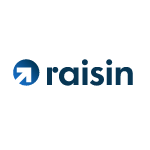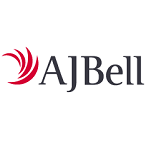- Updated
-
 Check By
Richard Berry
Check By
Richard Berry
Notice savings accounts are a type of cash savings account which sits somewhere between an instant access savings account and a fixed-term savings bond.
Notice Savings Accounts Best Rates For February 2026
The top five highest paying notice savings accounts right now are:
- Tembo Money – HomeSaver with bonus rate – 4.55% AER (no notice; includes 12-month bonus)
- Chase – Chase Saver With Boosted Rate – 4.50% AER (no notice; includes 12-month bonus)
- Oxbury Bank – Personal 120 Day Notice Tracker 1 – 4.5% AER (120 days’ notice, includes Prosper Boost, new customers only)
- Oxbury Bank – 60 Day Notice Base Rate Tracker 1 – 4.45% AER (60 days’ notice, includes Prosper Boost, new customers only)
- GB Bank – 120 Day Notice Issue 3 Account – 4.33% AER (120 days’ notice)
Overall, notice accounts remain attractive for savers who want better-than-easy-access returns without full lock-ins, but with rates expected to drift down through 2026, those seeking certainty may still prefer fixed-rate bonds.
Top Paying Notice Accounts by Period
Notice accounts generally pay higher interest than easy access but are variable and require planning ahead. Longer notice periods (like 180 days) typically pay the best rates, while shorter periods (30–90 days) still offer attractive returns above standard savings but a bit lower than the longest notices.
Here are the top paying notice savings account ranked by how much notice you have to give to access your money:
- No notice – Tembo HomeSaver with bonus rate – 4.55%
- No notice – Chase Saver With Boosted Rate – 4.50% AER
- 60 days – Oxbury Bank 60 Day Notice Base Rate Tracker 1 – 4.45% AER
- 120 days – Oxbury Bank Personal 120 Day Notice Tracker 1 – 4.5% AER
- 120 days – GB Bank 120 Day Notice Issue 3 Account – 4.33% AER
Top tip: longer notice still pays more, with 180-day accounts clearly winning on rate, but Shawbrook’s 45-day notice account stands out by dominating both the 60- and 90-day categories, offering strong returns without tying money up for half a year.
How do notice savings accounts work?
With a notice account, you have to notify your provider in advance when you want to make a withdrawal.
The notice period might be of 30, 60 or 90 days or even longer, (government-backed premium bonds have a notice period of 30 days).
You might get a better interest rate than on an easy access savings account, but this is not guaranteed so it’s worth checking the best-buy tables carefully.
Bear in mind that rates on notice accounts are variable. The terms and conditions of different accounts will vary – some will allow you to make additional deposits, and some will let you withdraw money without giving notice, but you may have to forfeit a portion of interest earned.
There may also be limits on the number of withdrawals you can make each year.
When you’re in the market for a cash savings account, being able to do a bit of forward planning can often secure you a better rate. If you can wait a little while to access your savings, a notice account could give you a little more interest than an easy-access savings account, without having to lock your money away for a long period.
Are notice savings accounts a good idea?
While they might be suitable for saving for a medium-term goal with a fixed end date, such as a holiday, wedding or Christmas, your day-to-day emergency fund is probably better in an easy-access account. Some notice accounts can only be managed in a branch or by post, which won’t suit everyone.
Pros
The main advantage of a notice period is that it’s a compromise which could get you a slightly higher rate than you might get on an easy-access account without shutting your money away for years in a fixed-rate bond.
Cons
The main disadvantage of these accounts is that they are not very flexible: you will need to plan when to access your savings. If an emergency arises and you have to get your hands on your cash, you face the choice of waiting out the notice period or losing some of your interest.
Notice savings account alternatives
If you want quicker access to your savings or want to see if there are better saving account interest rates Hargreaves Lansdown offers an Active Savings product, where you can save across a range of different savings accounts without having to open up a new account each time.
We have also listed below some of the latest saving account switching offers and providers with some of the best interest rates for your savings.
You may also be interested in these other types of savings accounts:





